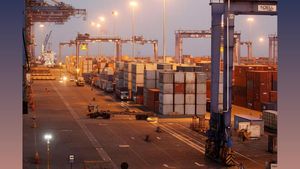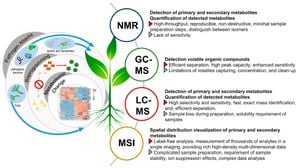Thailand's economy is experiencing turbulent times as rising interest rates and persistent inflation pose obstacles to recovery. The Bank of Thailand (BOT) recently raised its policy interest rate by 25 basis points to 2.25% during its meeting on February 14, 2028, marking the highest level since 2020. This decision was made to combat inflation, which has remained above the central bank's target range of 1-3%.
The inflation rate is currently hovering around 3.3%, driven largely by higher food and energy prices, as well as increased demand following the pandemic. Although some economists had anticipated the BOT to maintain rates, the recent surge in consumer prices prompted the tightening of monetary policy to prevent inflation from spiraling out of control.
With interest rates climbing, Thailand’s consumers and businesses face growing financial pressure. Retailers are reporting declines in sales as rising costs force consumers to tighten their budgets. According to the Thai Retailers Association, sales growth has slowed to 1.5% from 4.4% last year, owing to decreased purchasing power among consumers.
The government is attempting to address these economic challenges with various fiscal measures, including direct cash handouts to low-income households aimed at bolstering consumption. The scheme, dubbed the “cash for consumption” initiative, is expected to allocate approximately 30 billion THB (around $870 million) to eligible families, who will receive 3,000 THB each.
Despite such measures, some experts warn of potential complications. An analysis by Oxford Economics suggests the impact of the interest rate hike may outweigh government efforts to encourage spending. “The effectiveness of such handouts is limited; consumers may save the money rather than spend it amid uncertainty,” remarked Sarah Johnson, lead economist at Oxford Economics.
This high level of uncertainty is exacerbated by external pressures such as rising global energy prices and geopolitical tensions. The BOT has acknowledged these factors, stating they have considerable influence over the consumer price index.
Conversely, the Thai Chamber of Commerce has been vocal about the need for more substantial policy measures. They argue for the BOT to reconsider its stance on interest rates, advocating for monetary easing instead, which they believe could stimulate economic activity and employment. “Higher interest rates are strangling businesses. They need lower rates to finance investments, especially small and medium enterprises,” said Vorapol Suthipanyalert, president of the Thai Chamber of Commerce.
This struggle between managing inflation and stimulating economic growth continues to create tension among policymakers. Some lawmakers have criticized the BOT for increasing interest rates too aggressively, urging them to adopt more cautious measures. Meanwhile, consumers continue to feel the pinch as Eurozone imports become more expensive, leading to pressures on domestic prices.
Concerns are particularly pressing for low-income households, who are disproportionately affected by higher food prices and stagnant wages. The situation has led to calls for additional government support to help those struggling with daily expenses, as inflation continues to outpace wage growth.
Economists believe immediate relief may not be sufficient. Consequently, the BOT and the government are urged to develop more comprehensive strategies addressing both the short- and long-term ramifications of rising costs and interest rates.
Looking forward, many are keeping their eyes on the potential for future rate hikes, depending on how inflation trends develop over the next few months. The BOT has indicated they will remain vigilant, ready to adjust policy as necessary.
The uncertainty surrounding the future direction of Thailand's economy challenges the belief of many sectors grappling with the impact of higher borrowing costs. With analysts constantly evaluating both domestic and international developments, the path forward remains uncertain.
Overall, the intertwining pressures of rising interest rates, inflation, and low consumer spending raise questions about how effectively Thailand can navigate these turbulent waters and what it signals for the nation's economic outlook.



